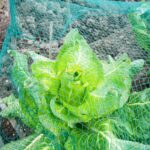Do vegetable gardens add value to your home? Many homeowners may wonder about the impact of having a vegetable garden on their property’s worth. In this article, we will delve into the relationship between vegetable gardens and property value, exploring the benefits that come with cultivating your own produce right in your backyard.
Having a vegetable garden has numerous advantages beyond just providing fresh produce. From enhancing curb appeal to promoting health and environmental sustainability, there are many reasons to consider starting your own garden. Not only can it save you money on grocery bills, but it can also potentially increase the value of your home in the long run.
By understanding the various benefits of having a vegetable garden, homeowners can make informed decisions about incorporating one into their property. From cost savings to aesthetics, and even potential financial gains, there are plenty of reasons to consider adding a vegetable garden to your home. Let’s explore how cultivating your own produce can not only enrich your life but also enhance the overall value of your property.
Benefits of a Vegetable Garden
Having a vegetable garden in your home offers a multitude of benefits that go beyond just providing fresh produce. One major advantage is the opportunity to lead a healthier lifestyle by consuming organically grown fruits and vegetables.
By growing your own food, you have full control over what goes into the soil and ultimately onto your plate, reducing the risk of harmful chemicals present in store-bought produce. This can lead to improved overall health and well-being for you and your family.
Furthermore, vegetable gardens contribute to environmental sustainability by promoting biodiversity and reducing carbon footprint. Growing your own vegetables means less reliance on commercially grown produce that often involves long-distance transportation and excessive use of pesticides.
By practicing sustainable gardening techniques such as composting and water conservation, you are actively contributing to a greener planet. This eco-friendly aspect of vegetable gardening not only benefits the environment but also enhances the overall appeal of your property to potential buyers who prioritize sustainability.
In addition to the health and environmental advantages, having a vegetable garden can also result in significant cost savings over time. With rising grocery prices, growing your own vegetables can help offset some of these expenses by providing a constant supply of fresh produce at minimal cost.
This financial benefit not only impacts your household budget positively but also adds value to your home in the eyes of prospective buyers who appreciate the economic advantages of owning a property with a fully functional vegetable garden.
Curb Appeal
When it comes to enhancing the curb appeal of your property, a vegetable garden can be a beautiful and functional addition. Not only does it add color and life to your outdoor space, but it also shows potential buyers or visitors that you are dedicated to sustainable living and self-sufficiency. A well-maintained vegetable garden can make your home stand out in the neighborhood and create a welcoming atmosphere for guests.
In addition to adding visual interest, vegetable gardens can also provide a sense of tranquility and relaxation. The sight of lush green plants, colorful fruits, and vegetables can create a peaceful oasis in your backyard. Whether you have a small plot or a larger garden space, the presence of growing produce can evoke feelings of connectedness with nature and promote overall well-being.
Studies have shown that homes with well-kept vegetable gardens tend to sell faster and at higher prices compared to properties without such features. Potential buyers appreciate the added value of having access to fresh produce right in their own backyard. This trend indicates that when it comes to real estate, do vegetable gardens add value to your home? The answer seems to be a resounding yes.
| Aspect | Benefit |
|---|---|
| Curb Appeal | Enhanced aesthetic appeal |
| Well-being | Promotes relaxation and connection with nature |
| Property Value | Potential increase in home value |
Health and Environmental Benefits
Vegetable gardens not only provide homeowners with a source of fresh and organic produce but also come with a host of health and environmental benefits. By growing your own fruits and vegetables, you have control over what chemicals and pesticides are used in the cultivation process, ensuring that you consume food that is free from harmful substances.
Additionally, homegrown produce is often richer in nutrients compared to store-bought counterparts, as they are picked at the peak of ripeness and consumed shortly after harvesting.
To further highlight the health benefits of vegetable gardens, here are some advantages of consuming homegrown produce:
- Increased intake of vitamins and minerals
- Better taste and flavor due to freshness
- Promotion of a balanced diet rich in fiber
From an environmental perspective, vegetable gardens contribute to sustainability by reducing the carbon footprint associated with transportation and packaging of store-bought produce. By growing your own fruits and vegetables, you minimize the need for extensive agricultural practices that contribute to deforestation, pollution, and loss of biodiversity. Additionally, home gardens promote biodiversity by providing habitats for beneficial insects, birds, and other wildlife that contribute to a healthy ecosystem.
Here are some environmental benefits associated with having a vegetable garden:
- Reduction in food miles and greenhouse gas emissions
- Less reliance on industrial agriculture practices
- Promotion of soil health through organic gardening methods
Cost Savings
Reduced Grocery Expenses
One of the primary benefits of having a vegetable garden at home is the significant cost savings it can offer. By growing your own produce, you can drastically reduce your grocery expenses. Instead of purchasing fruits and vegetables from the store, you can simply step into your backyard and harvest fresh, organic produce for your meals. This not only saves money but also ensures that you have access to healthy, pesticide-free food.
Economical Alternative
Furthermore, maintaining a vegetable garden provides an economical alternative to constantly buying expensive produce. With just a small investment in seeds, soil, and basic gardening tools, you can yield a bountiful harvest throughout the growing season. Over time, the cumulative savings on your grocery bills can be substantial, allowing you to allocate your food budget to other essentials or luxuries.
Long-Term Financial Impact
In addition to the immediate savings on grocery expenses, having a vegetable garden can have a long-term financial impact on your overall household budget. As the cost of living continues to rise, being able to supplement your diet with homegrown fruits and vegetables can help offset inflation and provide stability in your food costs.
This financial resilience contributes to the overall value of your home and demonstrates resourcefulness and self-sufficiency to potential buyers. Ultimately, investing time and effort into cultivating a vegetable garden not only enriches your health but also adds tangible value to your property in more ways than one.
Increased Property Value
One of the factors that homeowners often consider when contemplating investing in a vegetable garden is whether it will have a positive impact on the value of their property. Research and statistics have shown that indeed, vegetable gardens can potentially increase the value of your home.
According to a study by the National Gardening Association, homes with well-maintained gardens tend to sell for higher prices than those without any landscaping features. This includes vegetable gardens, which are increasingly becoming an attractive selling point for potential buyers.
The appeal of a vegetable garden lies not only in its aesthetic charm but also in the lifestyle it represents. More and more people are prioritizing health, sustainability, and self-sufficiency, making a well-tended vegetable garden a desirable feature in a home.
Real estate professionals have noted that homes with vegetable gardens are often associated with a higher quality of life and are seen as more environmentally friendly. This perception can translate into added value for your property when it comes time to sell.
In addition to the emotional and lifestyle appeal of vegetable gardens, there are also tangible financial benefits that contribute to increased property value. A well-designed and maintained vegetable garden can help lower grocery bills by providing fresh produce right at your doorstep.
This cost-saving aspect is attractive to potential buyers who see the practical benefits of having their own source of fruits and vegetables. By emphasizing these benefits, homeowners can potentially see a positive impact on their property’s overall value by investing in a vegetable garden.
Tips for Starting a Vegetable Garden
Starting a vegetable garden can be a rewarding and fulfilling experience, not just for your health and well-being but also for the value it can potentially add to your home. If you are considering starting your own vegetable garden, here are some practical tips to help you get started and maintain a successful garden:
- Location: Choose a sunny spot in your yard that receives at least 6-8 hours of sunlight per day for optimal plant growth.
- Soil Preparation: Make sure your soil is healthy and fertile by adding compost, organic matter, and fertilizers to provide essential nutrients for your plants.
- Plant Selection: Choose vegetables that grow well in your climate and consider the space available in your garden. Start with easy-to-grow plants like tomatoes, peppers, lettuce, and herbs.
- Watering and Maintenance: Ensure that your garden is watered regularly, either through manual watering or irrigation systems. Regular weeding, pruning, and pest control are also important to maintain a healthy garden.
- Seasonal Planning: Plan your garden according to the seasons and make sure to rotate crops to prevent soil depletion and pest infestations.
By following these tips and putting in the effort to start and maintain a vegetable garden, you can enjoy fresh produce right from your backyard while potentially increasing the value of your home. Real estate experts often highlight the appeal of having a well-maintained garden as a selling point for homes, especially in today’s market where more buyers are looking for sustainable living options.
As you embark on this journey of growing your own food, remember that a vegetable garden not only provides health benefits, cost savings on grocery bills, and environmental advantages but also adds aesthetic charm to your property. So why wait? Start digging, planting, and nurturing your own vegetable garden today to reap all these benefits while enhancing the value of your home.
Real Estate Perspective
Expert Opinions
Real estate experts often highlight the positive impact that vegetable gardens can have on the overall value of a property. According to many real estate professionals, homes with well-maintained vegetable gardens are perceived as more attractive and desirable to potential buyers. These experts suggest that a flourishing vegetable garden can make a significant difference in the perceived value of a home, especially in today’s market where sustainability and eco-friendly practices are highly valued.
Market Trends
In recent years, there has been a noticeable trend towards properties with sustainable features such as vegetable gardens. Many homebuyers are increasingly looking for homes that offer not just aesthetic appeal, but also practical benefits like having access to fresh produce right in their own backyard.
This shift in consumer preferences has led to an increase in demand for homes with existing vegetable gardens or the potential to start one. As a result, properties with well-designed and well-maintained vegetable gardens are often able to command higher selling prices compared to those without this feature.
Adding Value
While the exact monetary value that a vegetable garden adds to a property can vary depending on various factors such as location and size of the garden, studies have shown that homes with vegetable gardens generally sell for more than those without. In addition to increasing the overall appeal of the property, a vegetable garden is seen as an additional asset that sets a home apart from others on the market.
By catering to the growing interest in sustainable living and self-sufficiency, homeowners who invest time and effort into maintaining a vegetable garden may potentially see a return on their investment when it comes time to sell their property.
Conclusion
In conclusion, it is evident that vegetable gardens can indeed add significant value to your home in various ways. Not only do they provide a source of fresh and healthy produce for you and your family, but they also contribute to the overall aesthetic appeal of your property. The cost savings from growing your own vegetables, along with the environmental benefits of reducing carbon footprint and food miles, further enhance the value that vegetable gardens bring to homeowners.
Research and statistics show a positive correlation between the presence of vegetable gardens and increased property value. Potential buyers are increasingly recognizing the appeal of homes with well-maintained gardens that offer sustainable living options. Real estate experts emphasize that a thoughtfully designed and well-maintained vegetable garden can set your property apart in a competitive market, potentially leading to faster sales and higher selling prices.
Frequently Asked Questions
Does a Vegetable Garden Save You Money?
A vegetable garden can save you money in the long run by reducing your grocery bills. Growing your own produce means you don’t have to buy as much from the store, which can add up to significant savings over time.
Are Vegetable Gardens Worth It?
Vegetable gardens are definitely worth it for many reasons. Not only do they provide fresh, nutritious produce right at your doorstep, but they also offer a sense of accomplishment and satisfaction. Additionally, gardening can be a therapeutic and enjoyable activity for many people.
What Are the Economic Costs and Benefits of Home Vegetable Gardens?
The economic costs and benefits of home vegetable gardens vary depending on factors such as initial setup costs, ongoing maintenance expenses, and the value of the produce grown. While there may be some upfront investments in tools, soil, seeds, etc., the long-term benefits of having access to fresh, organic vegetables can outweigh these costs.
Furthermore, growing your own food can lead to reduced spending at the grocery store and potentially even create surplus that could be sold or shared with others. Overall, the economic impact of home vegetable gardens can be positive for many individuals and families.

If you’re looking to get into vegetable gardening, or are just looking for some tips on how to make your current garden better, then you’ve come to the right place! My name is Ethel and I have been gardening for years. In this blog, I’m going to share with you some of my best tips on how to create a successful vegetable garden.





